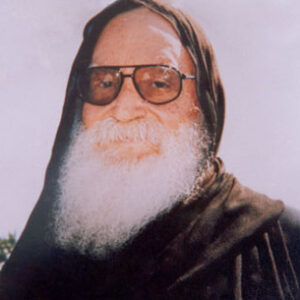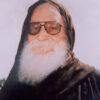In the "Paradise of the fathers," it is said, "Quietness is the first knowledge of the soul." St. Isaac said, "Search for quietness in any place... and keep silent in the place where you find it" This means that when you find, even very little quietness, try to benefit from it, for outward quietness is …
In the “Paradise of the fathers,” it is said, “Quietness is the first knowledge of the soul.” St. Isaac said, “Search for quietness in any place… and keep silent in the place where you find it” This means that when you find, even very little quietness, try to benefit from it, for outward quietness is of great benefit within the person’s soul. This is why we consider ourselves (the monks’ perception) the happiest people in the world. If we want to define the monk, we can say, “The monk is the person who lives without worry.” This is true, for what are the Monks worries? He has none.
In the “Paradise of the fathers,” there is a nice saying, “The human being who leaves the kingdom is praised by the wise and the righteous and the one who leaves Monasticism, even if he becomes a king, is blamed by the wise and the righteous.” The sayings of the book are true, for the monk is honored by the wise and the righteous.
The path to Monasticism is filled with gifts, and with numerous blessings that the Monk acquires on the way, if he proceeds with wisdom, discipline and selective thoughts. He must know that it is unwise for the Monk to execute any thought that comes to his mind, even if it right, in his opinion. The devil plants these thoughts, that seem “good” outwardly only, with the intention of shaking the Monk from his place.
Many Monks have resisted these thoughts, that were “good” in appearance, and they did not immediately achieve them. Just like the thought that came to St. Macarius the Great, to go and preach in Rome. In those days, he had a fine reputation and a great spiritual standing, and many would have benefited from him. However, St. Macanus the Great said, “l have fought these thoughts for several years, until I was sure that they were thoughts of pride.” The Saint put his feet outside his cell, and his head inside, then he held a dialogue with his thoughts, saying, “If you are from God, and are able, then take me out of this place. if they cannot, then realize that they are thoughts of grandeur, and I leave them.”
The monk must therefore, beware of the thought and even test it; is it from God, or from the enemy of goodness? However, how can the Monk know this? He can recognize it by the way it reflects on the human soul. If the thought is met with an, inner peace, then it is from the Lord. For the thought that comes from the Lord is restful, joyful and stable. The contrary is also true; the thought that is confusing, exhausting, and unstable, tires the thinking and scatters it here and there; and therefore cannot be from the Lord. It is said about this, “What is stable is from God, and what is from the world, vanishes.” It is generally dangerous, for the monk or for a person, to execute a thought quickly, because the wars of the enemy of goodness come through the thoughts. Therefore, examination and precision are necessary. If we cannot differentiate between the thoughts, and know from where they have come, and to where they will lead, then we must pray for them, asking for God’s help, confessing our weakness and our inability to distinguished. Surely, the Lord will come to select the thoughts and make them known to the one seeking knowledge.
St. Ignatius of Antioch defines the Monk as, “The pure thought …the clean thought.” So we ask ourselves, “How can the thoughts be purified?” The thoughts are purified with time and with amendment. Throughout the life of the Monk, and his continuous struggle, he is subjected to many thoughts; he resists them, does not deal with them, does not allow them to grow or expand. Therefore only the thoughts that are from God remain, and he rejects the rest.
With the passing of time, his thoughts become purified, and so does his heart, because the piety of the heart is preceded by the piety of the thought. Finally, the piety of the heart is in finding sin repugnant. It is considered one of the great virtues that the human being reaches, but not from the beginning of the path, or during the first years. The Holy Fathers had acquired this virtue after many years of struggle.
If you read the biography of one of the Elders, or one of the Saints, do not think that you can imitate him, or easily attain what he had attained, because they, themselves, did not easily reach this high level of sanctity, but only after great effort and struggle. So, look upon the end of their lives, and acquire their faith to struggle on the road.
Join Us: Sign Up Today!
Tags:










